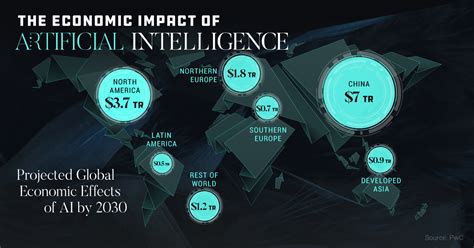The potential social and economic impacts of Artificial Intelligence (AI) and Machine Learning (ML) on employment are vast. AI and ML have the potential to automate many jobs, leading to job losses in certain sectors. This could lead to increased inequality as those with higher levels of education and skills may be able to find new roles while those without these qualifications may struggle to find work. Additionally, AI and ML can create new opportunities for businesses, such as improved customer service or more efficient production processes.
In order to prepare for the potential impacts of AI and ML on employment, governments and businesses should focus on developing policies that promote retraining and upskilling initiatives. These initiatives should provide support to workers who may be displaced by automation, helping them transition into new roles. Governments should also consider introducing measures to ensure that companies using AI and ML technologies do not discriminate against certain groups of people when hiring.
Businesses should look at ways to use AI and ML responsibly, ensuring that they are taking steps to protect their employees’ rights and safety. Companies should also invest in training programs to help their staff develop the necessary skills to take advantage of the opportunities created by AI and ML. Finally, businesses should strive to create a culture of innovation and collaboration, encouraging employees to come up with creative solutions to problems posed by AI and ML.
By taking proactive steps to address the potential social and economic impacts of AI and ML on employment, governments and businesses can ensure that everyone is prepared for the changes ahead.
